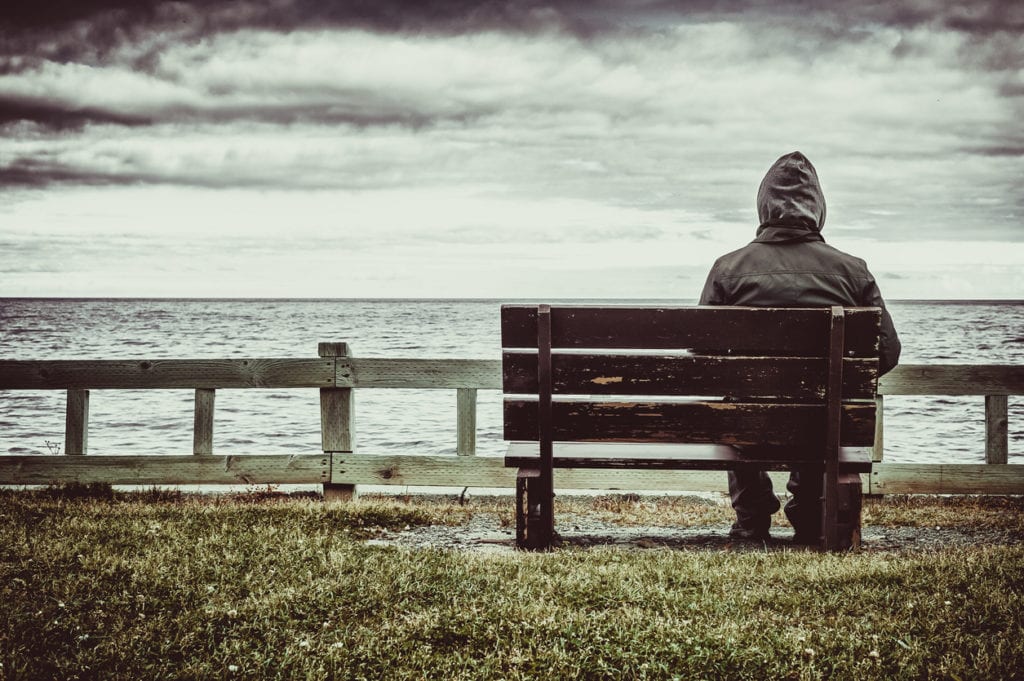Trending Now
Everyone is lonely sometimes; if it weren’t so universal, there wouldn’t be so many songs about it. If you move to a new city, or break up with your boyfriend, or lose a family member, you’ll probably feel lonely for a while. In fact, loneliness is a perfectly normal emotion – as long as it eventually goes away. When it keeps going and going, that’s when you start to see long-term negative effects.
And unfortunately for todays youngsters, loneliness is pretty rampant these days.

Photo Credit: Cigna
But why is loneliness bad for your health at all? I mean, it’s just an emotion, right?
Yes – but it also has evolutionary roots (as does everything, ammiright?). Back a hundred thousand years ago, group living was the major thing protecting people from the saber-tooth tigers of the world, so long-term solitude makes our bodies and brains feel unsafe. It’s totally out of our control, and it’s what makes chronic loneliness literally physically dangerous. In fact, socially isolated people have higher risk of mortality across the board. That means that chronic social isolation causes so many adverse health effects that people who are socially isolated are 20% more likely to die early than socially connected people.

Photo Credit: iStock
How is that possible? Well, research shows that loneliness raises levels of cortisol, also known as the stress hormone, in your blood. This can lead to higher blood pressure – high enough to put you at greater risk for heart attack and stroke. In an interesting note, weight loss and exercise, two extremely general pieces of health advice, were found to lower blood pressure by about the same amount that loneliness raises it. That means that, in at least this particular sense, loneliness is as bad for you as exercise and weight loss are good for you.
Loneliness also affects something called gene expression – which of your genes are turned off or on at any given time – in such a way that increases immune activity and inflammation (for those of you who don’t keep up with these things, random inflammation is generally pretty bad for you). The mechanisms are complicated, but basically your body starts fighting hard against bacteria, which means it has less immune response capacity left for other potential issues, which leads to a higher risk of cancer and other illnesses.

Photo Credit: iStock
But of course feeling alone is emotional, so it makes sense that loneliness would go to work on your brain, too. There is significant evidence that loneliness is a major risk factor for dementia later in life – a recent study showed that the loneliest people were 40% more likely to get dementia. This could potentially be connected to the fact that the loneliest people are also significantly less able to get a good night’s sleep – though it’s still unclear if there is a causal relationship – as there is some evidence that trouble sleeping can be a risk factor for dementia. Either way, less restorative sleep leads to difficulties during the day and increased negative feelings surrounding social interactions, which can, in a vicious cycle, lead back to increased social isolation.

Photo Credit: iStock
Loneliness is also very closely connected with depression; in fact, one of the classic symptoms of depression is feelings of social isolation. It is not entirely clear whether depression leads to loneliness or vice versa, though some evidence points to there being a reciprocal relationship between the two.
The largest psychological difference between lonely and non-lonely people is that lonely people have a stronger threat reaction to stressful circumstances – meaning that they are much more likely to retreat (ie. try to save themselves) rather than actually dealing with the issue. This again leads to a vicious cycle: stressful elements of life get worse when left un-dealt with, leading to a worse negative reaction by lonely people, leading to further withdrawal.

Photo Credit: iStock
There is even evidence that chronic loneliness is contagious. Consider this: you feel like your social life is lacking, but you’ve always been friendly with your neighbor. As you grow more socially isolated, you’re less likely to interact with your neighbor, first in a genuine fashion, then at all. In the end, you’ve withdrawn, and your neighbor has lost one of his social connections as well, leading him to feel more isolated than before.
Another vicious cycle.
Luckily, there is a very straightforward, if not so easy, solution to all these problems: social interaction! Increasing your social interaction, particularly by forming close bonds, can entirely mitigate the ills of loneliness. In fact, an 80-year longitudinal study conducted by Harvard found that people with stronger social bonds were both happier and healthier. But even on smaller timescales, social interaction makes a big difference in health and mood. Remember, humans evolved to live in groups, and, no matter how you may want to, you just can’t escape your genetic past.

Photo Credit: iStock
So get off the internet and go join a club or something!






